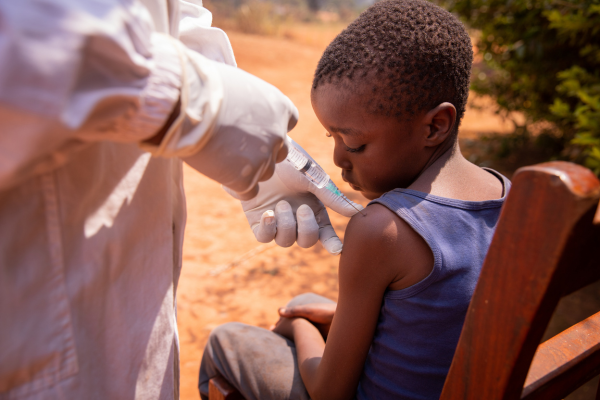
On malaria diagnostics: What if we could detect hidden malaria infections before they strike again?
The PvSeroRDT project aims to develop a point-of-care diagnostic test that detects individuals at risk of Plasmodium vivax hypnozoite infection who seem cured but can relapse later. This study will enable early detection of latent infections, support targeted treatment and reduce transmission, and finally, it will improve surveillance and case management strategies in endemic areas. Therefore, this tool could fill a critical gap in malaria elimination.
On malaria therapeutics: Safer and more efficient antimalarials in early pregnancy
Women in the first trimester are typically excluded from trials. SAFIRE and PYRAPREG-extended will assess the safety of various antimalarial drugs in early pregnant women. SAFIRE will focus on providing evidence-based guidance for safe malaria treatment in pregnant women in Kenya, Malawi, Tanzania, and Uganda. PYRAPREG-extended will evaluate the efficacy and safety of a newly registered artemisinin-based combination therapy in Mali, Burkina Faso, the DRC, and Tanzania. As pregnant women are at higher risk and there is a lack of approved treatment options, these trial helps close that gap.
On malaria vaccines: Smarter delivery could unlock full vaccine potential in seasonal hotspots
Projects such as OPT-MVAC and SMV Delivery are redefining how we reach vulnerable populations in seasonal malaria zones. OPT-MVAC will develop and validate strategies that improve vaccine uptake and delivery in countries with highly seasonal malaria transmission in West and Central Africa.
The SMV Delivery will identify and implement the most effective delivery strategies for the malaria vaccine in seasonal transmission areas, through Phase IV implementation research. The study will be conducted in Senegal Mali, Burkina Faso, Niger and Cameroon. Therefore, these projects will improve the delivery of vaccines at the right time to maximise protection and reduce malaria burden more effectively.
Fighting malaria together: 54 organisations join forces across 32 countries
Since its launch in 2022, Global Health EDCTP3 has committed €43.33 million to 11 malaria-focused projects, bringing together 54 organisations across 32 countries, of which 20 in Africa, 11 in Europe and 1 in Oceania. Of this investment, 41% supports research and development of vaccines, 23.8% advances malaria therapeutics, another 23.8% targets prevention tools, and 10.7% focuses on diagnostics. Additionally, these initiatives represent an integrated approach to ending malaria and saving lives, particularly among the most vulnerable: young children, pregnant women, and remote populations who remain disproportionately affected by the disease.
New funding opportunities for research on malaria
This year, €30 million has been earmarked under the 2025 Work Programme specifically to advance the clinical development of new and existing malaria therapeutics, building on a strong foundation of research launched in previous years. These new investments will further strengthen efforts to develop safer treatments, combat drug resistance, and support policy change across malaria-endemic regions in sub-Saharan Africa.
Details
- Publication date
- 25 April 2025
- Author
- Global Health EDCTP3 Joint Undertaking